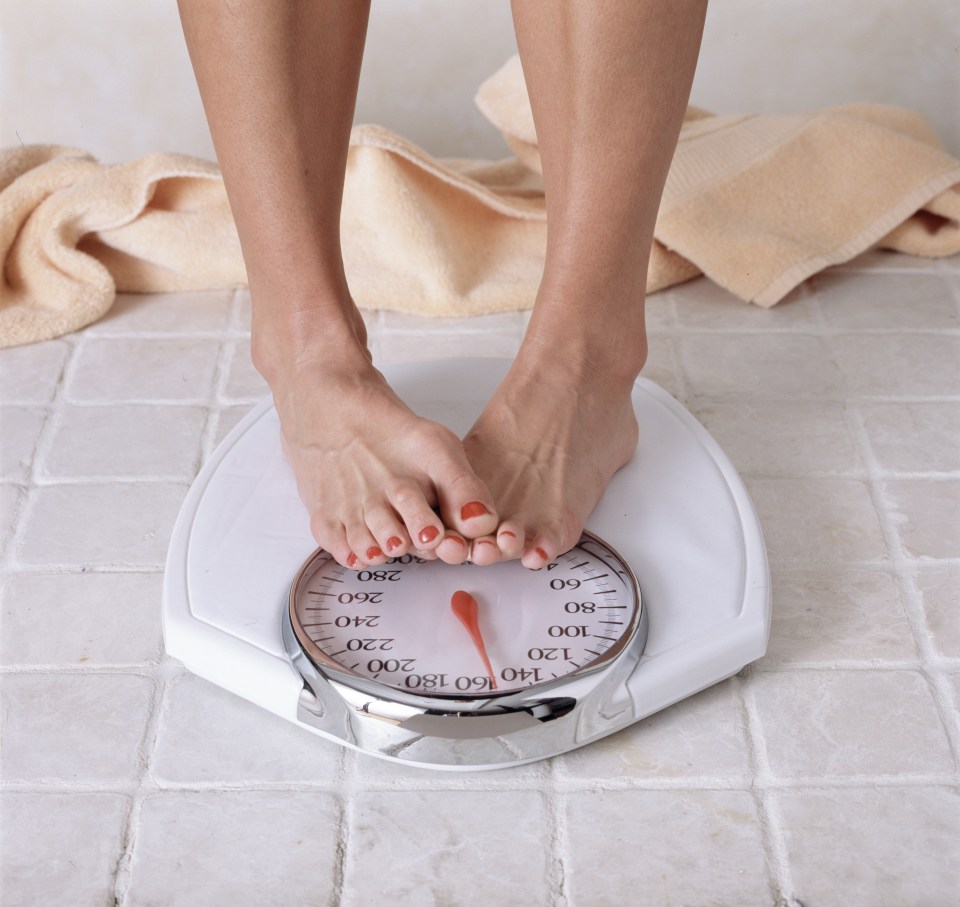Yo-yo dieting ‘gain MORE weight than those who never diet – and our survival instincts are to blame’
Scientists found those who regularly diet were more likely to pile on pounds as their brains told the body to prepare for future food shortages

YO-YO dieting will make you pile on the pounds as the brain tricks the body into storing fat, experts claim.
Restricting calories mimics a short famine, and triggers the caveman-like response to provide for future shortages.
The new evidence helps explain why many people will gorge when they're not dieting, and struggle to sustain any weight loss.
In contrast, those who shun repeated fad dieting are less likely to store fat, because their brain learns there is a reliable source of food.
Dr Andrew Higginson, senior lecturer in psychology at the University of Exeter, said: "Surprisingly, our model predicts that the average weight gain for dieters will actually be greater than those who never diet.
"This happens because non-dieters learn that the food supply is reliable so there is less need for the insurance of fat stores."
With an obesity crisis that is seemingly spiralling out of control, scientists are looking for evolutionary reasons to explain why so many people find to resist the urge to overeat.
The human race evolved in a world where food was sometimes plentiful and sometimes scarce.
In the latter case, the more body fat a person had the more likely they were to survive.
Surprisingly, our model predicts that the average weight gain for dieters will actually be greater than those who never diet
Dr Andrew Higginson
Researchers at the universities of Exeter and Bristol, developed a mathematical model of an animal that knows if food is abundant or limited, but has no idea when their situation might change.
They found when food supply is often restricted - as it is for yo-yo dieters - most animals will gain more weight between food shortages.
Today, people can get into a vicious cycle of weight gain and ever more severe diets - so-called yo-yo dieting - which only convinces the brain it must store ever more fat.
The researchers' model predicts that the urge to eat increases hugely as a diet goes on, and this urge won't diminish as weight is gained because the brain gets convinced that famines are likely.
Related Stories
"Our simple model shows that weight gain does not mean that people's physiology is malfunctioning or that they are being overwhelmed by unnaturally sweet tastes," said Professor John McNamara, of the University of Bristol's School of Mathematics.
"The brain could be functioning perfectly, but uncertainty about the food supply triggers the evolved response to gain weight."
So how should people try to lose weight?
"The best thing for weight loss is to take it steady. Our work suggests that eating only slightly less than you should, all the time, and doing physical exercise is much more likely to help you reach a healthy weight than going on low-calorie diets," Dr Higginson said.
The study is published in the journal Evolution, Medicine and Public Health.
We pay for your stories! Do you have a story for The Sun Online news team? Email us at [email protected] or call 0207 782 4368







